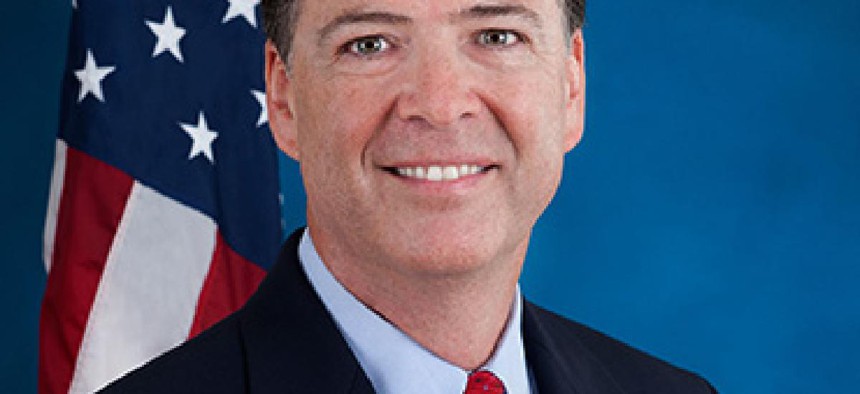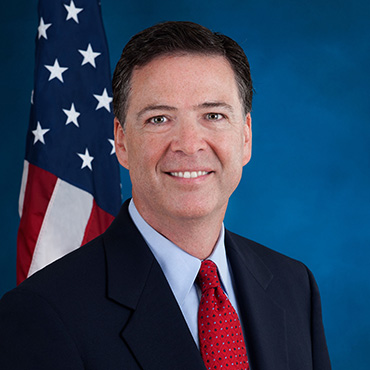Comey: Industry letter on encryption is 'depressing'

The FBI director said a head-on collision is coming between privacy and public safety.

FBI Director James Comey says he wants to engage with stakeholder on possible solutions to the encryption dilemma.
FBI Director James Comey again sounded the alarm about the potential consequences to law enforcement of the default encryption of communications on mobile devices and computers, and termed a letter from leading tech firms urging President Barack Obama not to further regulate commercial encryption "depressing."
Speaking at the annual Georgetown Cybersecurity Law Institute, Comey said that "we have a collision that's going on in this country that's getting closer and closer to an actual head-on," between privacy and public safety.
A host of tech firms, including Apple and Google, along with industry groups and privacy activists signed onto a letter to Obama about encryption the day before Comey's speech. Comey said the letter was "depressing" because it "contains no acknowledgement that there are societal costs to universal encryption."
"I read this letter and I think that these folks don't see what I see, or they're not fair minded," Comey said.
The costs, a phenomenon Comey refers to as "going dark," include a gradual slide into a world in which terrorists, criminals, and others enjoy access to encrypted safe havens where nefarious plans, stolen intellectual property, and child pornography can be shared with impunity. Comey said he spends a portion of every day dealing with the threat of the Islamic State, a place where "cyber and counterterrorism merge."
"The threat we face has morphed," he continued. “It's a chaotic spider web through social media, increasingly invisible to us because the operational communications are happening on encrypted channels."
As society becomes increasingly digital, Comey is worried that communications that could be lawfully obtained through court orders are now beyond the reach of the legal process. "The logic of universal encryption is inexorable that our authority under the Fourth Amendment ... is going to become increasingly irrelevant," Comey said.
While he did not renew his call for a "legislative fix" to allow government to get around commercial encryption, whether through back doors or the development of new technologies, he did want to engage with stakeholders about possible solutions. "Technical people will say it's too hard. My reaction to that is, 'Really? Too hard for the people we have in this country to figure something out?' I'm not that pessimistic," he said.
Patriot Act
Comey noted that the possible expiration of Section 215 of the Patriot Act had consequences for the FBI and domestic criminal and counterterrorism investigations that were generally not discussed, because the debate over the provision typically focused on the bulk collection of telephonic metadata by the National Security Agency.
The FBI uses Section 215 in about 200 cases a year to get records through the Foreign Intelligence Surveillance Court that it could not obtain via grand jury subpoena or a National Security Letter. The FBI's "roving wiretap" authority as it applies to counterespionage and counterterrorism investigations is also contained in Section 215. This allows the FBI to conduct telephonic surveillance on a person who may be using "burner" phones without having to renew the wiretap order for every single device. Finally, a provision called the "lone wolf" provision that allows the FBI to target the communications of a U.S. person – a citizen or legal resident -- who is said to pose an imminent threat, even if investigators can't identify or don't know whether an established terrorist group is guiding the suspect's actions.
Comey characterized all three as "noncontroversial" provisions that sunset June 1 unless they are extended. "I don't want them to get lost in the conversation about metadata," he said. According to a Justice Department memorandum first reported by National Journal, the government is taking steps to wind down the use of these authorities by May 22, as well as the NSA metadata program, in the event that Congress does not reauthorize the statute or pass a new bill.
The House passed an updated version of the Section 215 authorities as the USA Freedom Act on May 13 by an overwhelming, bipartisan vote. The Senate debate looks to be more contentious.



